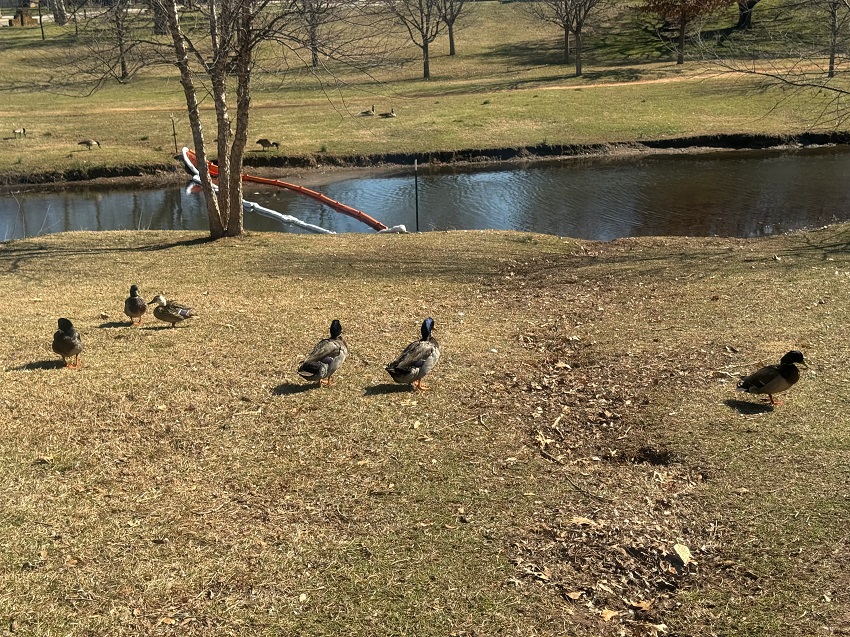Enid, Okla. — A disturbing chemical odor at the University of Oklahoma’s duck pond has raised alarm among local residents, prompting concerns about the health of both the wildlife and the environment. Jacob Lackner, a University of Oklahoma alumnus, and his wife, also an OU graduate, visited the pond last week, only to find themselves confronted with a situation that seemed to pose a serious threat to the animals living there.
The couple noticed an unmistakable, overpowering smell, reminiscent of an oil spill. As they observed the area more closely, they saw several ducks coated in a smudgy, oily substance. The behavior of the ducks was also unusual — they were frantically attempting to clean themselves, but to no avail. Lackner, familiar with the effects of oil on wildlife, immediately suspected that a chemical or oil spill had contaminated the pond’s waters.
“This is like the biggest red flag,” Lackner said, describing the scene. “It smelled like an oil spill, and we could tell that a lot of the ducks were acting strange.”
Lackner explained that the presence of foreign oils or chemicals on the ducks’ feathers is particularly dangerous. Ducks rely on natural oils produced by their bodies to maintain waterproofing and insulation. When these feathers are contaminated by outside substances, they become ineffective, leaving the ducks vulnerable and unable to properly care for themselves.
The couple expressed concerns that this situation might be part of an ongoing issue at the pond. Though they noted that chemical spills and oil contamination have occurred in the past, they emphasized that this particular incident was more severe.
“It’s never been so much that it’s like harming them in a big way until now,” Lackner said. “But it’s always been happening.”
Despite their distress over the situation, Lackner and his wife have made it their mission to rescue as many ducks as possible. They’ve managed to rescue one duck so far, taking it to WildCare, a local wildlife rehabilitation center, where it is being treated for the oil contamination. The couple is continuing their efforts to catch and rescue the remaining ducks, hoping to prevent further harm.
In the meantime, the Lackners have struggled to get answers from the University of Oklahoma regarding the contamination. Efforts to contact the university and seek clarification on whose responsibility it is to maintain the pond and prevent chemical spills have so far been unsuccessful.
The Lackners are not the only ones concerned. Local residents and animal welfare advocates are calling on the university to investigate the source of the contamination and take immediate action to protect the pond’s wildlife and ensure the safety of future visitors.
The situation at the University of Oklahoma’s duck pond highlights the growing need for greater attention to environmental protection on campus and the responsibility of institutions to safeguard the health of both local ecosystems and the animals that inhabit them. As the Lackners continue their rescue efforts, the community is left hoping for answers and swift action from the university.

